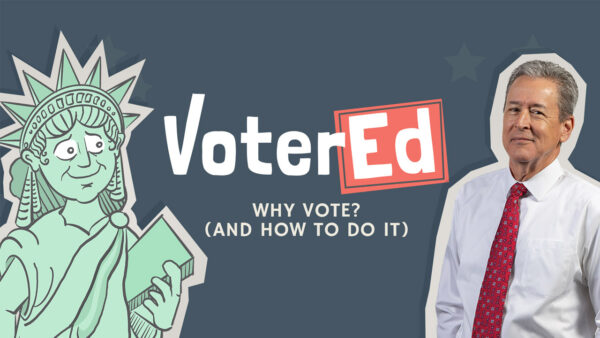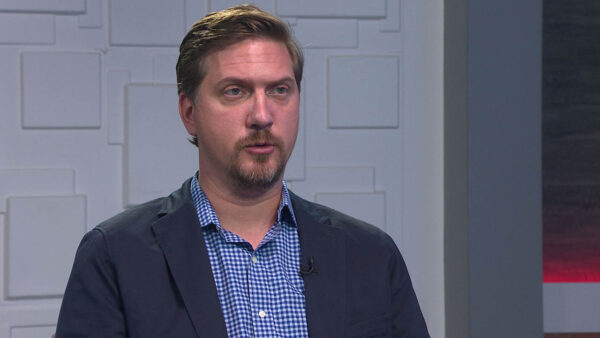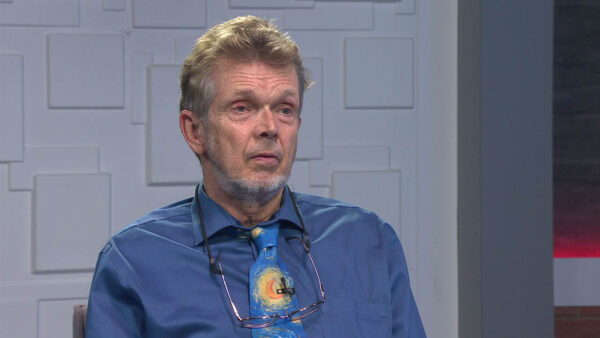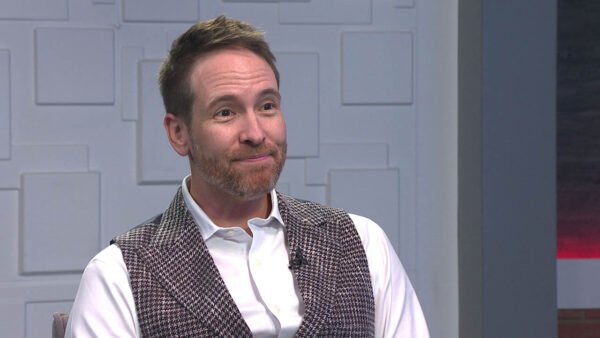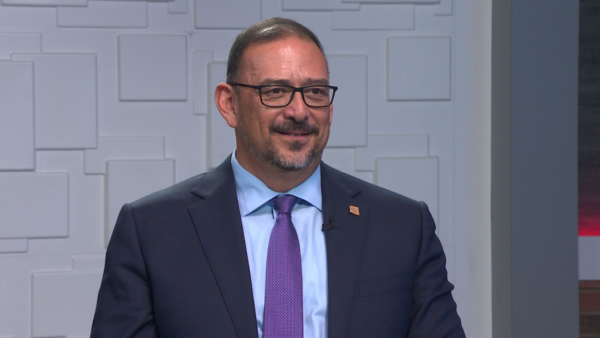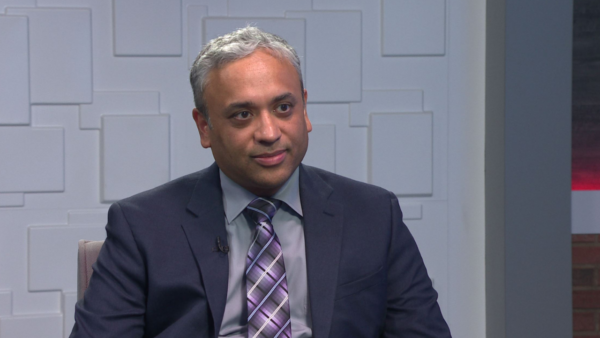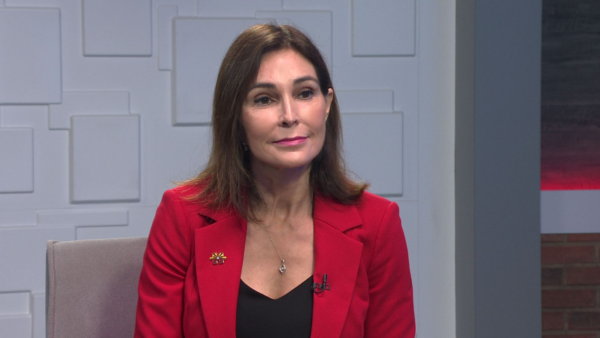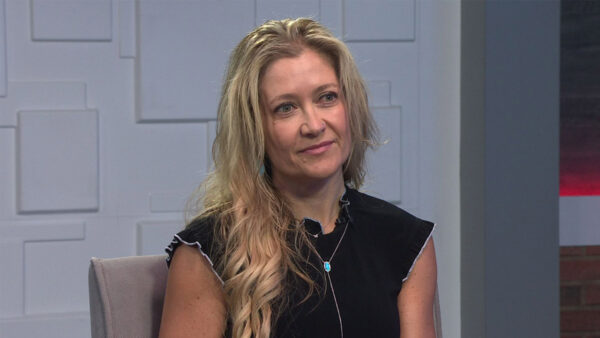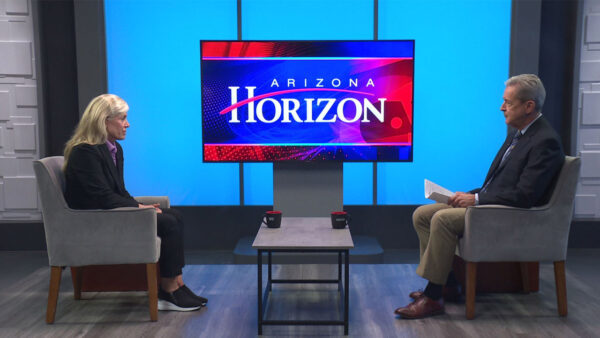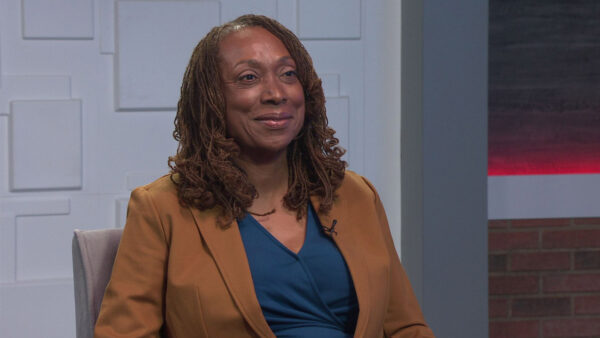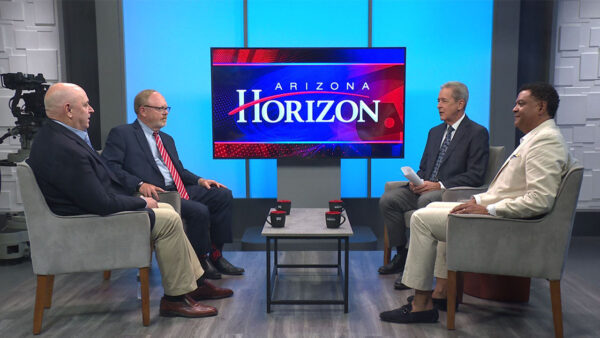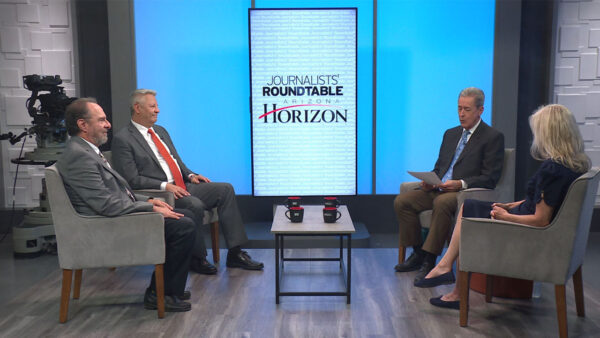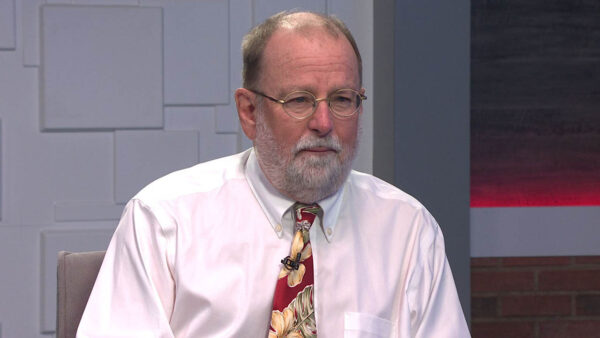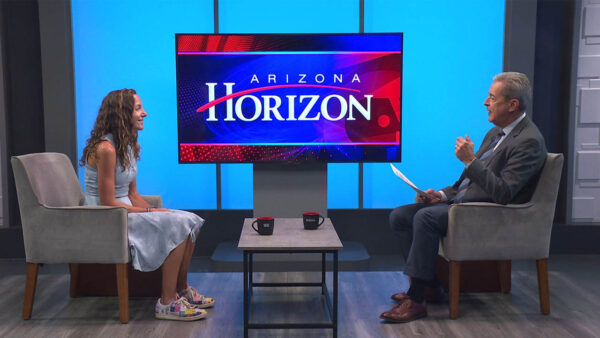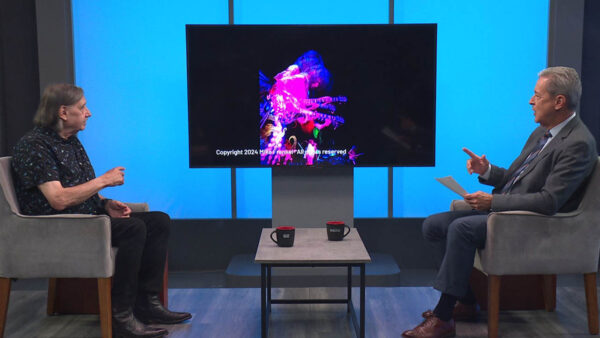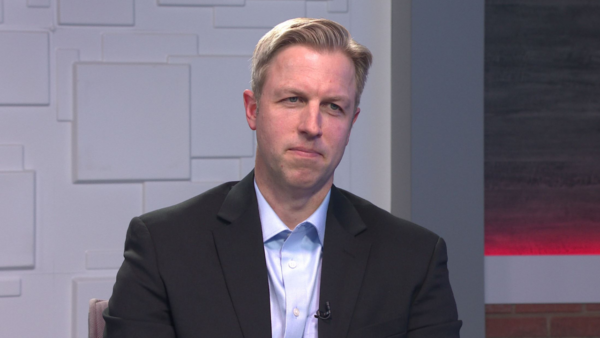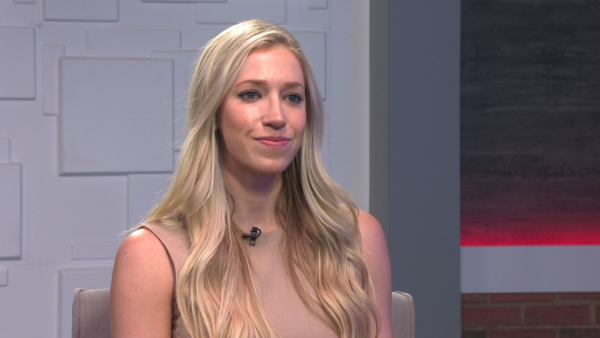Climate change is here and how we adapt to it will go a long way in determining the future of humans on Earth. That’s the basic conclusion of the recently released Third National Climate Assessment report by the National Climate Assessment and Development Advisory Committee. The report had the input of nearly 300 authors and is the most comprehensive look at the science and effects of climate change in the U.S. Two of those contributing to the report are Arizona State University life sciences professor Nancy Grimm and School of Geographical Sciences and Urban Planning professor Michael Kuby. They will discuss the report.
Ted Simons: Climate change is here and how we adapt to it will go a long way in determining the future of humans on earth. That's the basic conclusion of the recently released third national climate assessment report by the National Climate Assessment and Development Advisory Committee. The report is the most comprehensive look so far at the science and effects of climate change in the U.S. Among those contributing to the report ASU life sciences professor Nancy Grimm and ASU School of Geographical Sciences and Urban Planning professor Michael Kuby. Good to have you both here. Thank you so much for joining us.
Nancy Grimm: Thanks.
Ted Simons: All right. The national climate assessment development advisory committee. That's a long name. What's it all about?
Nancy Grimm: That committee is actually a committee of about I forgot the number but something like 65 individuals who oversaw the development of the report, which was actually accomplished more like the ipcc, by a group of 300 authors on the 30 chapters that were in the report.
Ted Simons: And what did the report look at?
Nancy Grimm: It looked at sectors. It looked at eight sectors that are actually required by the global change act of 1990. It also looked at eight regions of the United States. So what were the impacts of climate change, what are the expected future impacts and to some extent what can we do about it?
Ted Simons: And the conclusion is as I mentioned, it's here, we better start adapting. Is that pretty much what it was?
Michael Kuby: Absolutely. It's already happening and it's affecting every region of the country and every sector of society.
Ted Simons: What do we know right now today about climate change? In general?
Michael Kuby: As far as the effects or the causes?
Ted Simons: You name it. What do we know?
Michael Kuby: Okay. Well, we can start with certain facts. There's a massive amount of carbon that is under the ground in the form of fossil fuels that took millions of years to turn into fossil fuels and that has been released, a lot of it in the span of a century or two. And so we know that fact. We know that the parts per million of co2 in the atmosphere has gone from 280 in the pre-industrial era to over 400. Just in the last couple of years. We know that co2 is a gas that keeps the atmosphere warm. And so more co2 is going to make the atmosphere warmer and just right down the line. We know that the effects of increasing the co2 are what we're seeing, almost two degrees warming since the end of the 19th century, eight inches of sea level rise, retreating glaciers, shrinking Arctic ice.
Ted Simons: These are things, these are things we know. These aren't things that look like on a computer model that are going to happen.
Nancy Grimm: These are things that have happened already. This is the "already" part of it. It's predictable to some extent from the changes that we've seen but what is really unknown is how the climate system, climate as a system and how that will actually change. So, for example, you've heard, and I think that the report does a very good job of looking at the latest evidence, the frequency and magnitude of extreme events will change and by extreme events I mean, things like heavy rains which we've already seen in most regions of the country, increases in the frequency of the heaviest 10% of rain events. We also will see changes in storms like hurricanes. We would see increases in storm surge, river flooding, urban flooding and so forth. All those are extreme events. And extreme heat, which is something we think about a lot here.
Ted Simons: I want to get back to that.
Michael Kuby: Higher heat and longer duration heat waves.
Ted Simons: And so in terms of urban planning, everything from transportation to, you know, where are you going to set your house, what do we do? What are the recommendations? What do you see out there?
Michael Kuby: Well, the effects on transportation are going to be direct effects on the travelers, on the infrastructure, on the vehicles, and then there are indirect effects, which crops are grown where. We have this whole transportation system designed to ship wheat from certain areas and they're going to be grown in new areas in the future.
Ted Simons: Like basically moving north you're saying?
Michael Kuby: Oh, sure. Sure. Absolutely. And, you know, energy. The amount of heating, oil going to some places will go down. The amount of energy needed for cooling in the summer will go up. All these patterns will also affect transportation.
Ted Simons: I'm guessing the southwest is where some of that energy to cool? Hotter? drier?
Nancy Grimm: Heat waves are a big concern in the north and the northeast, New York, for instance, very concerned about heat waves and how they're going to prepare for those kinds of things.
Ted Simons: How about us here in the southwest?
Nancy Grimm: Certainly. It's a large challenge and it's compounded by the fact that over 90% of our population lives in cities and so there's this other urban heat island effect that cities produce. On top of that, increases temperature we're going to see, you know, in the southwest chapter I think, some of the projections, some of the biggest projections which are actually, by the way, the trajectory we're on right now, are suggesting that we could see very large temperature changes by mid-century. In the extreme heat realm. So really looking like a not very pleasant place to be.
Ted Simons: And every time we talk about climate change, global warming, we get folks who call and write and they express their skepticism at the very least on this. I've already seen this report being called alarmist, people saying there's not data to know if it's man caused, lots of theories, not so much proof. how do you convince those who just simply will not believe in climate change and global warming and it being man caused, what do you do? What do you say?
Michael Kuby: I would say go look at the report and all of the evidence that underlies every sentence in the report. There's a traceable account of supporting evidence. And you can trace it back to the original scientific articles that were the basis of those statements. It's very exacting.
Nancy Grimm: We're talking about hundreds of scientists who were participating in this and not just academic scientists, people in governments and nongovernment organizations as well as the private sector. And not just the chapter authors but all of the people that contributed technical input to the report. So a large number of scientists, it's an excellent report we worked very hard to make it transparent to anyone. I mean, you don't have to be a scientist to be able to read this. It's very transparent. You'll be able to understand the science and the arguments that are in there.
Ted Simons: So for those who say this is just a cyclical warming or cooling that we had previous, for 30 years. how do you respond?
Michael Kuby: You know, every decade of the last three or four has been hotter than the last. Every year in the 2000s has been hotter than the average in the 90s.
Nancy Grimm: If you accumulate this over the century, the past century and particularly since mid-20th century, you will see every decade increasing in the average temperature. Of course, there's variability in the climate. It's a climate system. It's very complicated. We're not climate scientists so we can't tell you exactly what the information is. But we can say that we have already seen these changes in our climate systems. They are leading to things like in your last segment you were talking about fire. There's a very clear link between the increase in drought, the decrease in the availability of water in systems in the southwest, increases in temperature and the incidence of fire.
Ted Simons: So with that in mind we've got a couple of minutes left here. Recommendations, what do we do with this report?
Nancy Grimm: Well, I think it's time and incidentally I think a nonpartisan report that came out from the Paulson institute is suggesting that the business community also believes it's time to start doing something about climate change. We're already locked into a certain amount of climate change that has happened and that is going to happen because of the amount of carbon dioxide we've put in the atmosphere so we have to reduce the emissions of carbon dioxide.
Ted Simons: Is that the basic recommendation of this report?
Michael Kuby: That's one of them, absolutely. You know, even stabilizing co2 emissions at the current level, we're emitting over eight gigatons of carbon a year and the natural environment is only absorbing four. Even if we kept it flat, which is going to be a challenge, climate change will accelerate.
Nancy Grimm: But you know ted this report says quite a lot about adaptation, as well. The kinds of things we can do, knowing that we're going to be seeing the increase in frequency of extreme events, for example, how can we protect our coastlines? How can we protect against fire. Can we actually have a more sensible forest management plan for protecting against increased fire?
Ted Simons: Alright, well, it's good to have you both here, good information. Thanks for joining us. We appreciate.
Nancy Grimm: Thank you.
Ted Simons: That is it for now. I'm Ted Simons. Thank you so much for joining us. You have a great evening.
Nancy Grimm:Life Sciences Professor, Arizona State University; Michael Kuby:Professor, School of Geographical Sciences and Urban Planning at Arizona State University;
